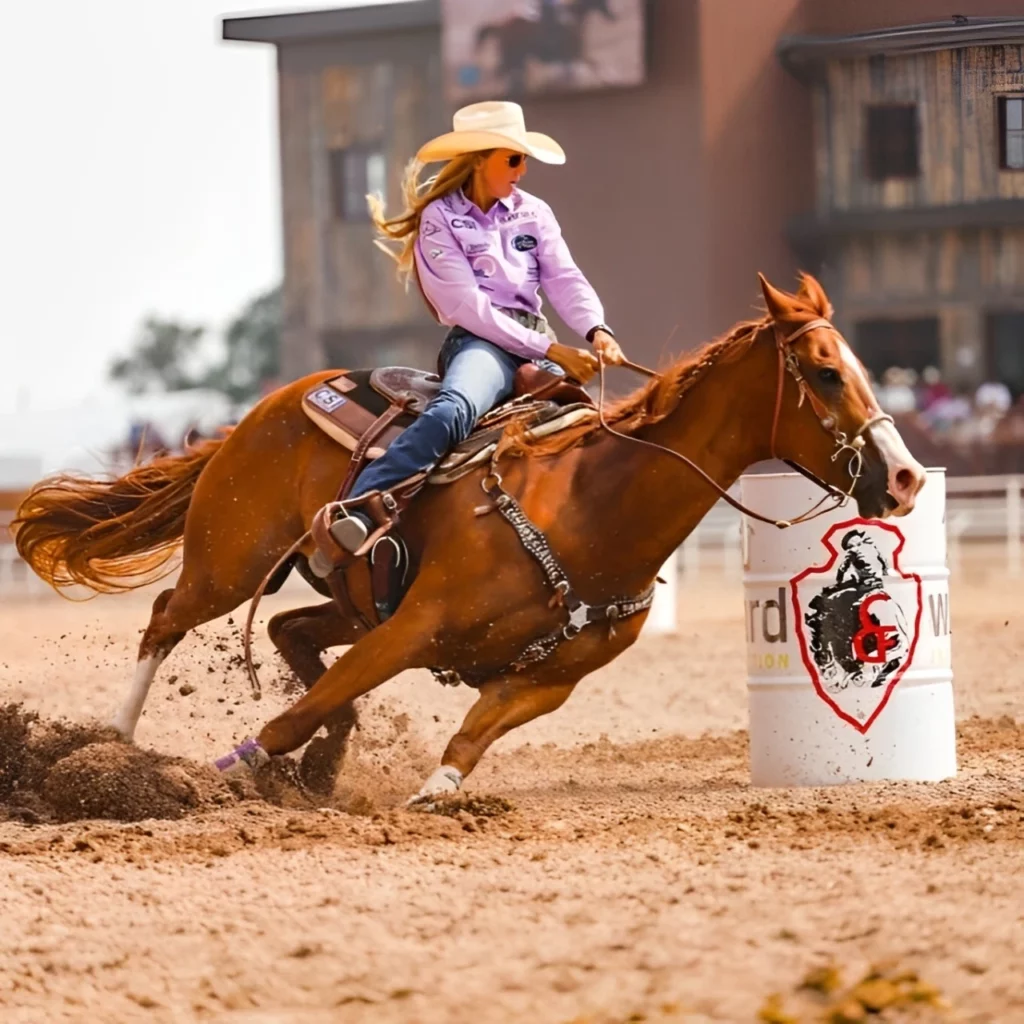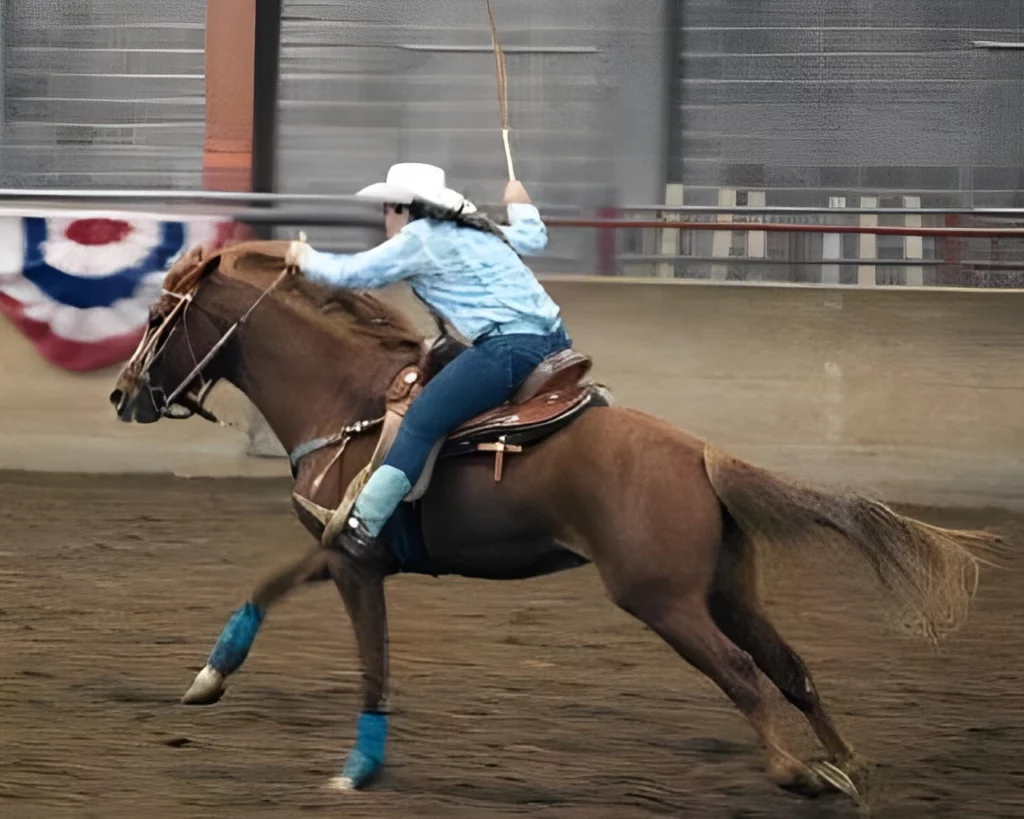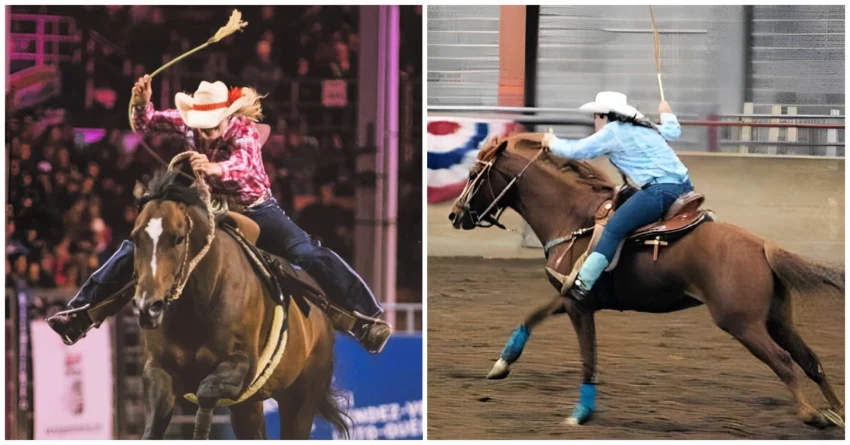In barrel racing, some riders believe that using a whip encourages their horses to run faster. However, evidence suggests that whipping can actually slow a horse down. When a horse is whipped, it may instinctively tuck its hindquarters to avoid the discomfort, which affects its stride and forward momentum. Additionally, excessive movement from the rider, such as whipping or shifting in the saddle, can throw off the horse’s balance and rhythm, making it even harder for the horse to maintain its speed. Studies have shown that horses experience pain similarly to humans when whipped, proving that this practice causes significant discomfort. Instead of helping the horse perform better, it can create stress, hesitation, and even resentment toward the sport. A horse that is physically and mentally comfortable will naturally perform at its best without unnecessary force.

Many experienced riders and trainers have observed that excessive whipping and kicking do not improve performance and, in many cases, can make it worse. Instead of motivating the horse, these actions may lead to confusion, discomfort, and a breakdown in trust between horse and rider. A well-trained horse that enjoys its job will give its best effort without needing harsh encouragement. This is why many top barrel racers focus on developing a strong partnership with their horses rather than relying on force. A happy and confident horse is more likely to run willingly, take tight turns, and stay focused on the pattern. Riders who stay calm and ride in a balanced way allow their horses to move naturally, leading to faster and smoother runs.

To improve performance, riders should prioritize clear communication and balanced riding. Staying centered in the saddle and keeping hands steady helps the horse move freely and efficiently. Instead of relying on a whip, using consistent leg pressure, voice commands, and good timing will encourage the horse to respond with speed and precision. Racehorses, for example, run long distances and are only whipped a few strides near the finish line, yet they maintain full speed throughout the race. This shows that horses do not need constant whipping to run their best. Good training and trust between horse and rider play a far bigger role in success than force or intimidation.

While some believe that whipping helps in barrel racing, it often has the opposite effect, causing discomfort and slowing the horse down. Riders who focus on balance, trust, and good riding habits will see better results and ensure their horse’s well-being. A strong and confident horse will always perform better than one that is tense and distracted by unnecessary pressure. Instead of forcing the horse to go faster, allowing it to run naturally while staying out of its way is the key to a winning performance. Putting the horse’s comfort and trust first will lead to smoother, faster runs and a happier partnership overall.
